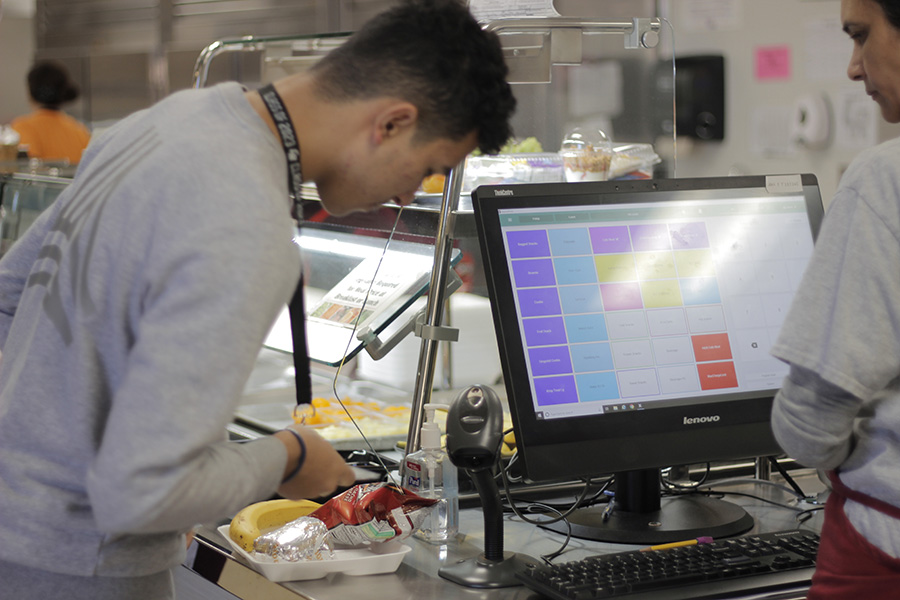More Fries or Tots?
Students Enjoy Relaxed Dietary Restrictions Following Trump Administration Roll Backs of Michelle Obama School Nutrition Guidelines
Students pay for their meals during A lunch. Students returned to school in the fall to reduced restrictions on lunch and breakfast dietary guidelines.
February 21, 2020
The Trump administration announced a rollback of Michelle Obama’s school nutrition guidelines on her birthday, January 17th, that could lead to more junk food and fewer vegetables and fruits to reduce waste and high costs.
“Schools and school districts continue to tell us that there is still too much food waste and that more common-sense flexibility is needed to provide students nutritious and appetizing meals,” the Agriculture Secretary Sonny Perdue said in a statement. “We listened and now we’re getting to work.”
The rollback would affect 30 million students including 22 million from low-income families at 99,000 schools in the National School Lunch Program. According to the Center for Disease Control, about 20% of children and adolescents aged 2-19 are obese and obesity affects 13.7 million children and adolescents nationwide.
“Parents and caregivers can help prevent childhood obesity by providing healthy meals and snacks, daily physical activity, and nutrition education,” Health Education Teacher Neil King said. “Nutrition education helps young children develop an awareness of good nutrition and healthy eating habits for a lifetime. Increased physical activity reduces health risks and helps weight management. Healthy meals and snacks provide nutrition for growing bodies while modeling healthy eating behavior and attitudes.”
Barack Obama signed the Healthy, Hunger-Free Kids Act in 2010 that required schools to serve fruits, vegetables, and low-fat milk and set whole grain and sodium targets.
“I believe that making healthy foods that are nutritious more appealing to students is a good idea,” Andrea Cooper, parent of sophomore Euan Cooper said. “It’s a real shame that it’s being reversed.”
Trump has been steadily implementing rollbacks of Michelle Obama’s policies, beginning with lowering sodium standards in May 2017 and allowing flavored milk and cutting the whole grain target in half in December 2018.
“I don’t like healthy foods,” sophomore Ben Hassal said. “It all narrows down to the students’ choice because students throw away food and no one is making you eat it.”


